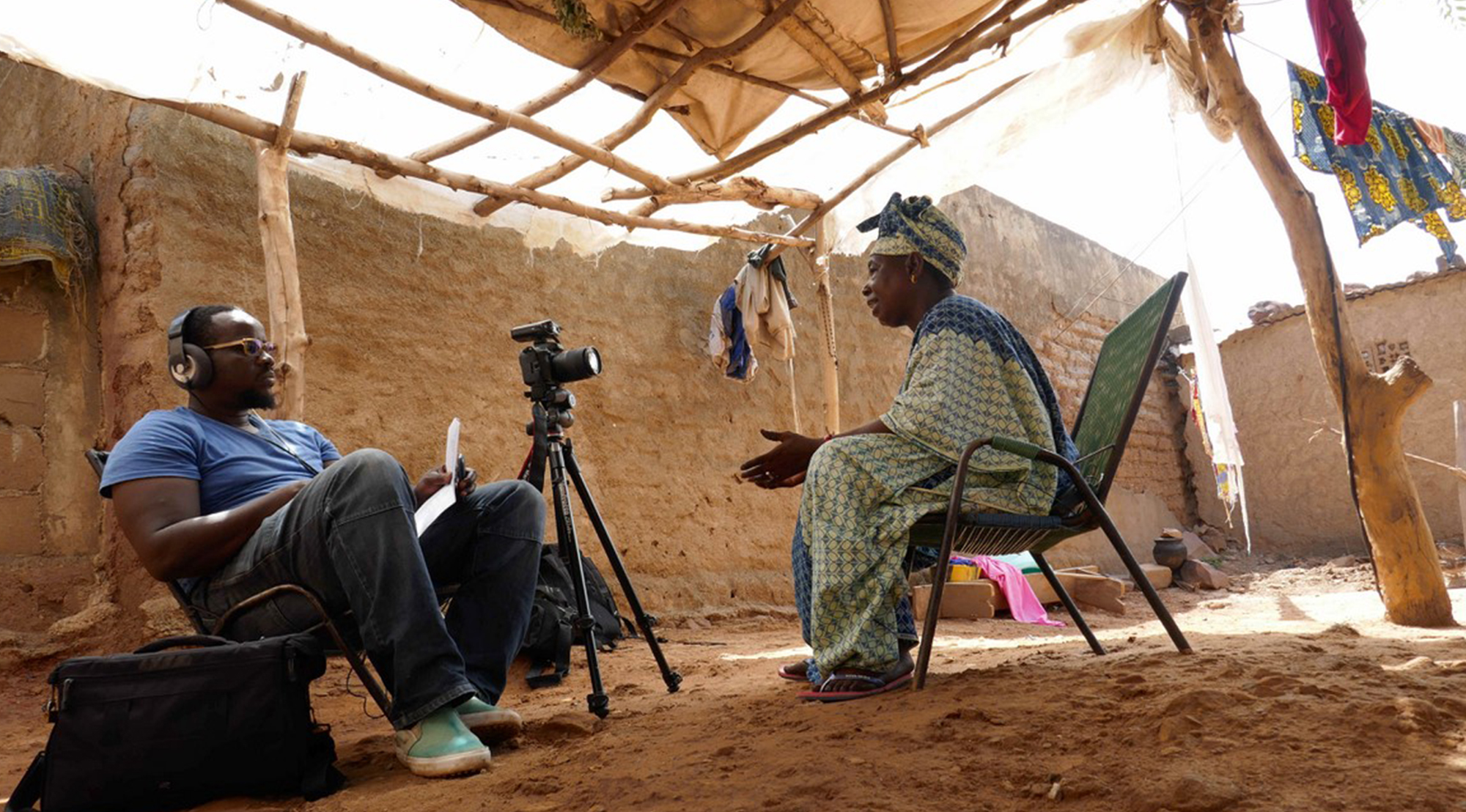In fragile states and regions faced with major crises such as the Sahel, women and girls face specific challenges participating in public life and are usually excluded from political and peace processes. Women are often victims and sometimes perpetrators of violence and their specific motivations to participate in armed groups and illicit activities need to be addressed. Fondation Hirondelle promotes gender equality and inclusiveness in its media, as well as dialogue initiatives and trust-building measures between populations and their representatives to empower women to be positive actors that contribute to peaceful, just and inclusive societies. Studio Tamani in Mali and Studio Kalangou in Niger are concrete media initiatives demonstrating the crucial role of local media for women’s participation in fragile societies, as well as the possibility for local development and local ownership of dialogue processes including women representatives from all sectors of societies.
Through carefully designed editorial productions, such as the video-documentary series on “Women rights program” in Studio Tamani, our local media help the population (men and women) understand how gender inequality and exclusion of women and girls in the Sahel prevents them from playing a positive role in building peaceful, just and inclusive societies. Yet the inclusion of women is central to achieving the Sustainable Development Goals, particularly SDG 16. In Niger, after several radio programs focusing on the status of women in the Nigerian society, the newsroom has decided to dedicate once a week, as of September 2019, the program “Forum”, a daily live talk-show, to the women’s perspectives on what is going on in the country, including the insecurity, failures in the national cohesion, etc. The show will be prepared and presented by female journalists, with female invitees, but reach the whole population (men and women).
As in peace processes, the participation of women in local media is not a given. It requires the Editor-in-Chief and their teams to integrate the inclusivity factors in their daily work: recruitment of female journalists to be at the table when the stories are discussed, building of balanced databases of contacts to invite female participants, experts and witnesses in debate shows, systematically be balanced when interviewing people, etc. Only then can local media better give voice to women and contribute to the improvement of women’s representation and women’s participation in fragile societies such as the Sahel.
The media can provide a holistic approach that looks at women both as victims and perpetrators of violence. They can ask how innovative tools and confidence-building measures in the society can be effective in promoting inclusion and nonviolent solutions to conflicts such as the ones in the Sahel. Only if the ways women can participate in public life and become part of peaceful solutions are addressed, can cycles of violence be overcome and peace and development be promoted.


